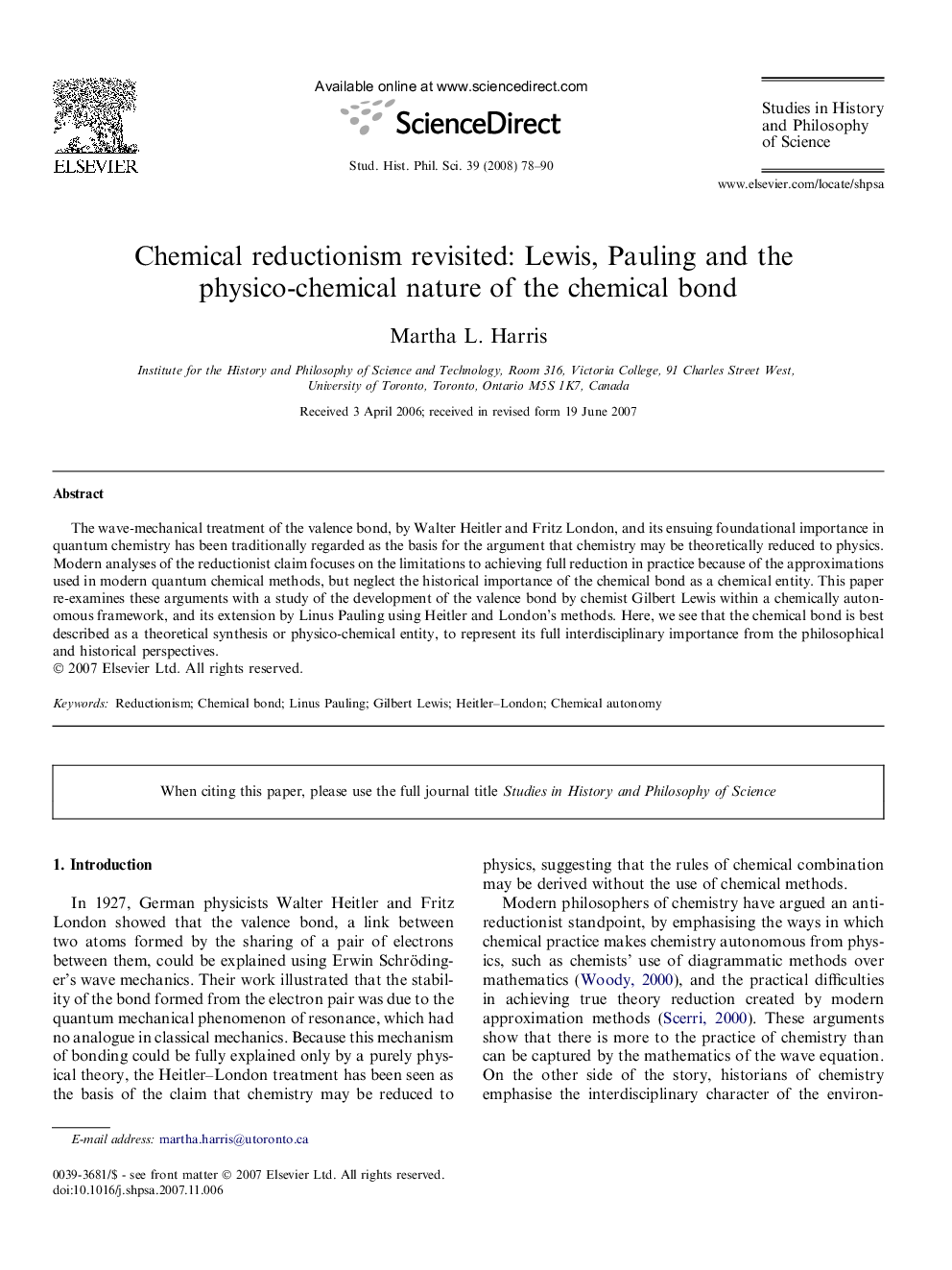| Article ID | Journal | Published Year | Pages | File Type |
|---|---|---|---|---|
| 1160722 | Studies in History and Philosophy of Science Part A | 2008 | 13 Pages |
The wave-mechanical treatment of the valence bond, by Walter Heitler and Fritz London, and its ensuing foundational importance in quantum chemistry has been traditionally regarded as the basis for the argument that chemistry may be theoretically reduced to physics. Modern analyses of the reductionist claim focuses on the limitations to achieving full reduction in practice because of the approximations used in modern quantum chemical methods, but neglect the historical importance of the chemical bond as a chemical entity. This paper re-examines these arguments with a study of the development of the valence bond by chemist Gilbert Lewis within a chemically autonomous framework, and its extension by Linus Pauling using Heitler and London’s methods. Here, we see that the chemical bond is best described as a theoretical synthesis or physico-chemical entity, to represent its full interdisciplinary importance from the philosophical and historical perspectives.
